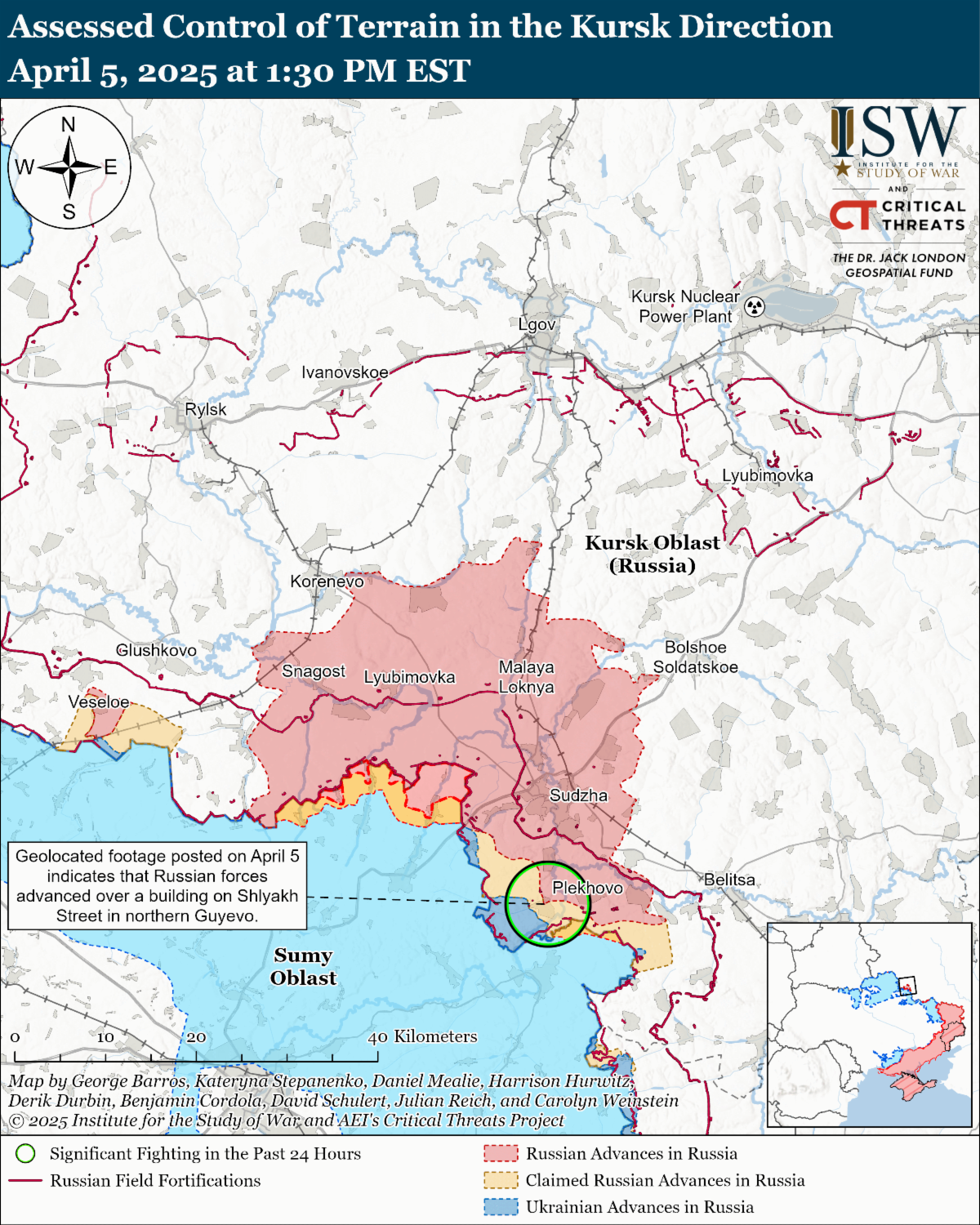European and NATO officials emphasized that a strong Ukrainian military backed by European security guarantees remains the most effective deterrent against future Russian aggression to ensure long-term peace in Ukraine and Europe. NATO General Secretary Mark Rutte gave an interview to Ukrainian outlet New Voice on April 5 and stated that the "first level" of security guarantees for Ukraine should be the Ukrainian military, which Rutte stated is the "first line of defense in deterrence." Rutte added that Ukraine's European partners, including France, the United Kingdom, and Italy, are also looking for ways to provide security guarantees to Ukraine following the conclusion of a peace agreement. The French General Staff similarly emphasized that the Ukrainian military is Ukraine's primary security guarantee for a lasting peace. The French General Staff added that France and the UK will work to define and develop "reassurance operations" to deter Russia from future aggression after the implementation of a peace deal. ISW continues to assess that a strong Ukrainian military backed by Western security guarantees remains the most vital component of a post-war European security architecture, guaranteeing a sustainable peace in Ukraine and deterring future Russian aggression. Russian demands for Ukraine's "demilitarization" such that Ukraine is unable to defend itself against future Russian aggression are counter to US President Donald Trump's efforts to achieve a lasting peace in Ukraine.
Ukraine's European partners continue preliminary technical discussions about a possible future peacekeeping contingent in Ukraine. Delegations from the British and French general staffs met with Ukrainian President Volodymyr Zelensky and Ukrainian military leaders on April 4 and 5 in Kyiv to discuss details about how the first contingent of partner state forces could deploy to Ukraine. Zelensky stated that the meetings resulted in "tangible details" about this possible deployment, established Ukraine's needs, and identified geographical vulnerabilities that may require support. Zelensky stated that the group still needs to decide where the forces would deploy, their responsibilities, and their authority to respond in case of a breach of a future peace agreement. Zelensky stated that it might take one month or longer to finalize additional details and that the group would meet weekly. NATO Secretary General Mark Rutte stated to Ukrainian outlet New Voice on April 5 that it is best to wait to deploy peacekeepers to Ukraine until after the conclusion of a peace agreement but that countries need to keep developing ideas now to implement after peace is achieved.
Key Takeaways:
- European and NATO officials emphasized that a strong Ukrainian military backed by European security guarantees remains the most effective deterrent against future Russian aggression to ensure long-term peace in Ukraine and Europe.
- Ukraine's European partners continue preliminary technical discussions about a possible future peacekeeping contingent in Ukraine.
- Ukrainian forces reportedly struck the only plant in Russia that produces fiber optic cables that are vital for Russian forces' fiber optic drones.
- Ukraine's European partners continue to provide technical support to Ukraine.
- Ukrainian forces recently advanced near Kupyansk, and Russian forces recently advanced near Toretsk and Pokrovsk and in Kursk Oblast.
| 




 [ISW] 러시아의 공세 캠페인 평가, 2025년 4월 10일
[ISW] 러시아의 공세 캠페인 평가, 2025년 4월 10일
 [ISW] 러시아의 공세 캠페인 평가, 2025년 4월 3일
[ISW] 러시아의 공세 캠페인 평가, 2025년 4월 3일